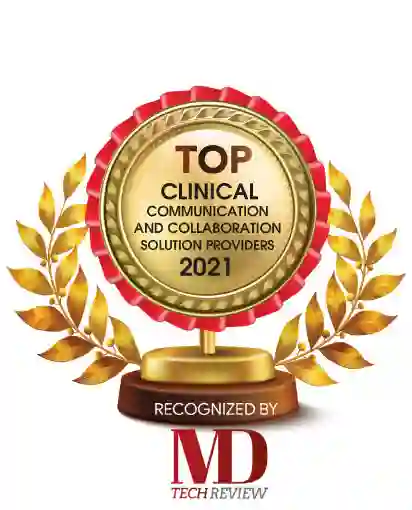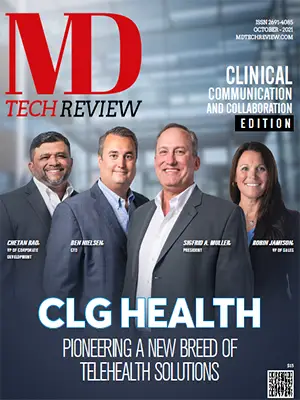 Dr. Timothy Liem, CMO, Qview Health
Dr. Timothy Liem, CMO, Qview HealthThis is where Qview Health steps in.
Qview Health has designed Qview Enterprise software to track adverse events in healthcare and support hospital-wide quality initiatives. It allows clinicians to communicate, collaborate, and correct safety issues within a secure and protected environment. “Our software ensures the continuous improvement of the healthcare delivery system by focusing on the pillars of the four Cs—Collect, Communicate, Collaborate, and Correct,” says Michael Baker, President, CEO and Chairman, Qview Health. It helps clients collect institution-required and department-specific quality data in one place, communicate and review the adverse events, collaborate across departments for root cause analysis, and correct the environment by implementing quality improvement measures.
One-stop-shop for Quality Improvement
Qview directly ingests data from the EMR system and securely communicates it across departments, enabling efficient data collection and multi-level collaboration. Even from a security perspective, Qview is highly reliable. Enabling organizations to move away from paper-based and siloed electronic systems, it standardizes quality management protocols and centralizes collected data securely. Patient and provider data remains protected as sensitive information is no longer shared through emails and texts. Additionally, it allows users to manage the case and peer review process in real-time, ensuring timely and action-based results.
The Qview platform consists of different modules to bolster the quality assessment efforts of healthcare entities. Also, clients can pick an individual module according to their unique requirements.
To elucidate, the Qview Incident Reporting Module (IR+) is designed to support all adverse events within a healthcare system, such as facility issues, patient feedback, professional and paraprofessional feedback, to name a few. Professionals who are designated to analyze and correct any issue can easily review these reports. “Primarily, nursing professionals and quality management professionals conduct over site for clinical incidents. On the other hand, designated departments review and perform root cause analysis of other incidents,” says Dr. Timothy Liem, CMO, Qview Health.
 Michael Baker, President, CEO, Chairman
Michael Baker, President, CEO, ChairmanAnother key feature of Qview is Case Review. It has been designed to emulate and improve upon the prior M&M process. This includes data collection, review, and tracking by respective specialties on a hospital-wide level. Qview also enables Case Review to be elevated to the Peer Review Committee. Further, its Peer Review module allows clients to securely review the performance of individual healthcare professionals related to an adverse event. This ability to conduct Peer Reviews dynamically in a protected environment is a valuable tool for improving quality outcomes.
Our software ensures the continuous improvement of the healthcare delivery system by focusing on the pillars of the four Cs—Collect, Communicate, Collaborate, and Correct
What keeps Qview always a notch above the rest is its ability to seamlessly address all its clients’ requirements—no matter how demanding the situation is. Even during the pandemic, the company played a crucial role in helping the healthcare industry manage the situation effectively. With Qview, hospitals could holistically track all the COVID-19 cases—from the moment patients got admitted to their treatment responses.
Qview leveraged relevant EMR data from hospitals and aligned it to the specificity of a quality issue. Qview’s team then helped clients to set up an appropriate workflow for each department to track COVID-19 and use hospitals’ existing Active Directory system for user authentication and security roles. Not stopping there, the company provided clients with live online training sessions tailored to a particular category of users, including system administrators, department users, and quality specialists, ensuring the effective usability of the software.
Today’s Expertise Leading to a Promising Future
Further upping the ante in the adverse events tracking space, Qview Health has recently collaborated with UC Davis Medical Center to implement the software across all their departments. The company assisted the client in enhancing patient care by referring cases to departments and divisions and discussing issues regarding the quality of care in a HIPAA-compliant environment. They made the entire process of accessing data more flexible, thereby reducing communication delay.
Using Qview’s IR+ module, anyone in the hospital today can submit an incident or safety report on the same platform. This allows for crosstalk and collaboration with the physicians who are often engaged in M&M adverse event reporting. Quick identification of quality concerns enables for immediate corrective action and the development and tracking of preventative protocols to reduce future occurrences. UC Davis Medical Center is not alone; Oregon Health & Science University and Shasta Community Health Center have also leveraged Qview to track their mortality cases across departments.
With many such successful collaborations and implementations, Qview Health aims to deliver the right data in the best way possible to the clients for supporting their quality initiatives. This young company is full of vigor and scope and has designed a two-fold growth plan for the coming years. One is about expanding its sales and enhancing the software; the other is about developing right-fit tools for different environments and creating more accurate analytics reports for clients. “We are developing new features by coupling clients’ ideas and feedback with our extensive industry expertise,” says Dr. Liem.
Currently, Qview is focusing on the incorporation of medical staff privileging in its platform. The bottom line is that the company is striving to address the issues associated with the quality and safety of patients. “We are continually expanding our reach to more universities and community hospitals along the West Coast and are all set to explore the international market as well,” Baker concludes.
Company
Qview Health
Headquarters
Portland, OR
Management
Dr. Timothy Liem, CMO, Qview Health and Michael Baker, President, CEO, Chairman
Description
Qview Health offers enterprise software that addresses the mandate for hospitals to collect, evaluate, and report quality outcomes data




